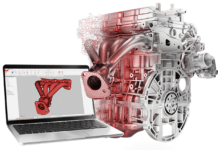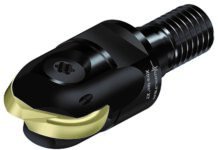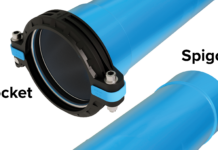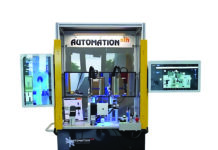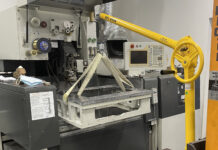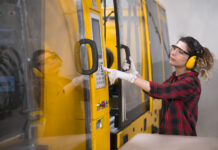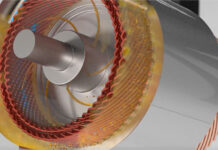 All shops seeking operator efficiency can do so through the education programs offered by builders and control suppliers alike.
All shops seeking operator efficiency can do so through the education programs offered by builders and control suppliers alike.
We’ve all heard about tribal knowledge and it certainly has its place, in the real world of machine shops. Those who have the hands-on experience dealing with sophisticated controls, drives, motors, encoders and set-up devices, as well as the quality checking instruments in their shops, are invaluable sources for knowledge and practical problem-solving strategies.
When they talk to the next generation of machinists, they are simply talking to themselves, a few decades ago. Despite the advancements in computer technology and the ways young people sometimes occupy their time, e.g. playing video games instead of reading Popular Mechanics, there’s one very special characteristic of all machinists and tradesmen alike. It’s the need, maybe even the passion, to use a tool to make something.
By imparting the how-to knowledge from one generation to the next, tradesmen of all types have prospered throughout the centuries. In a foundry, as a quick example, the molten metal is put into a mold to make a part, pretty much the same way it was, 4000 years ago. What has changed, of course, is the machinery that does the melting, molding, mold handling and, today, the robotic finishing of the part. On the software side, full computer simulation of the process exists, to virtually eliminate all the “trial and error” steps that were givens for centuries. “We’ll get it right, eventually” simply doesn’t cut it, anymore.
Nowadays, there is another source of training and it’s one that far too often ends up a low priority at many machine shops. It’s the training offered by votech schools, machine tool builders and the manufacturers of those sophisticated computer controls that seem to run everything in a shop today. Good training does indeed often occur by one operator showing another how something gets done better, faster and more efficiently. Today, it is also true that the best training requires parallel simulation of a CAD program operation, workpiece set-up, machine cycle or tool change strategy outside the envelope of the shop’s work cell. This offline instruction can be, often must be, a precursor to the start-up of an operator’s work life.
For a shop owner to think this activity is a low priority simply means that the shop will be at a competitive disadvantage in the market, often in unseen ways…until it’s too late. The simple fact is that technology is ramping up at a very fast rate and “the way we’ve always done it” just won’t work anymore. Shops of all types, it’s been documented, can realize a 20% or better improvement in their performance, from the very first part, when a machine tool and its controls are properly and fully utilized.
Likewise, the machine builders and controls suppliers, by furnishing the votech schools and their own training facilities with the very latest technologies, can improve their own bottom lines. This results from better, more brand loyal CAD and machine operators entering the market better prepared for the work presented to them. You can go see a machine demo at a builder open house, trade show or dealer showroom today, but you can also receive training on it from many of the votech schools and community colleges. Making yourself a better programmer, maintenance specialist or machinist is a smart move, as it will enhance your skills and, in the process, make you a much more valuable employee to your shop or production department. And yes, bosses notice that sort of initiative and reward it.
Best of all, the training now available represents a shop class on steroids. The machines and the software can do so much more today and that will make YOU a better performer.
In the bigger corporate picture, more companies, even competitors, will engage in active and structured collaborations to make the industry better, help nurture the next generation and improve the performance of American industry. On the shop level, too, there has been a significant growth in the number of owners donating their shop time to local schools to help provide young people with hands-on experience in a real working environment. Somebody did that for me once, by the way.
In a sentence, the industry needs to realize that training is not a cost, it’s an investment. And, it’s an investment we all need to make, if the industry is remain solvent in the U.S. There are currently hundreds of thousands of jobs available in American manufacturing, most of which go unfilled due to the lack of qualified people.
If you have questions or comments on this article, Randy Pearson, can be reached at (800) 879-8079 or (847) 640-1595. His email is randy.pearson@siemens.com.
For more information, visit ww

